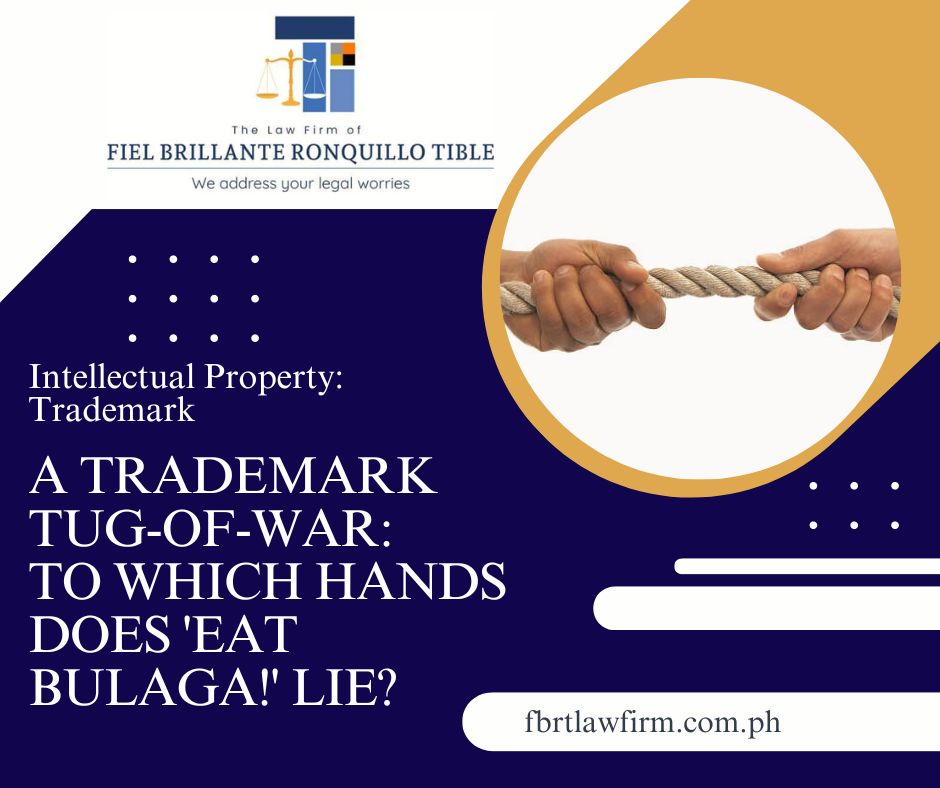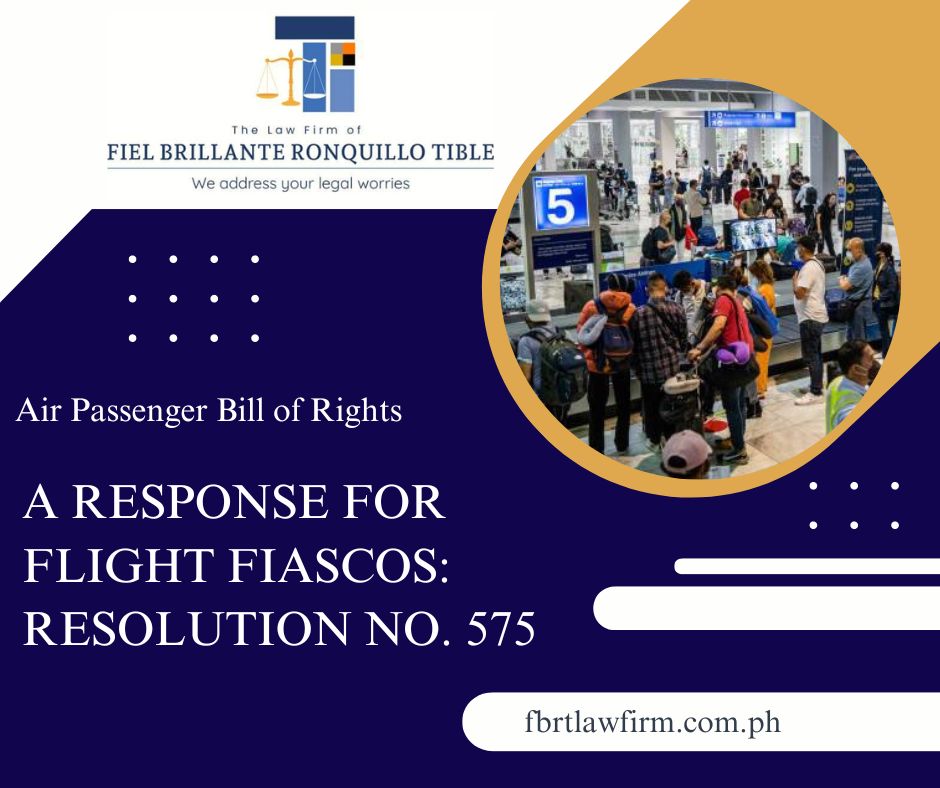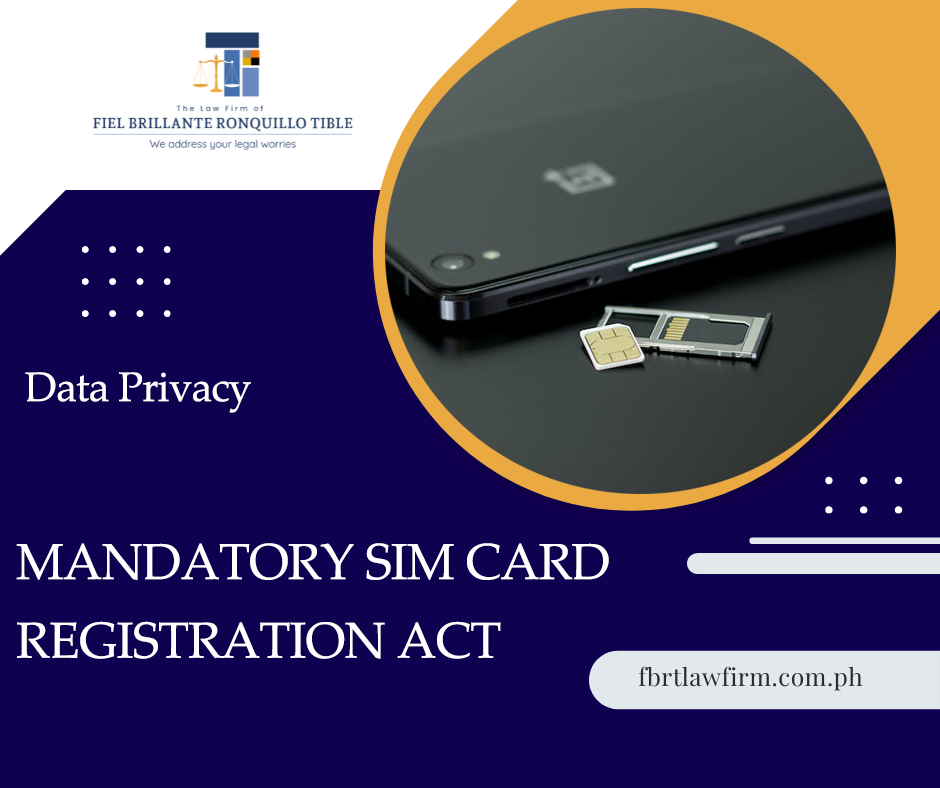Following the massive growth of COVID-19 cases in the Philippines, on 15 August 2020, the Department of Trade and Industry (“DTI”) and the Department of Labor and Employment (“DOLE”) issued Joint Memorandum Circular (“JMC”) No. 20-04-A series of 2020 providing for the supplemental guidelines in the workplace for the private sector.
The said guidelines are applicable to all private establishments regardless of economic activity, and shall become effective immediately upon its publication and filing with the University of the Philippines Law Center. The JMC provides that employers are required to implement all necessary workplace safety and health programs at no cost to the employees.
I – Increse Physical and Mental Resilience
Employers shall:
- Provide their employees with psychological support, especially those presenting mental health concerns (if unavailable, a referral system to mental health specialists must be in place);
- Promote work-life balance through proper scheduling of activities and workforce rotation; and
- Align the company policies on prevention and control of COVID-19 with existing minimum public health standards and guidelines issued by the Department of Health (“DOH”) and other regulatory agencies.
II – Reducing Transmission of COVID-19
The following shall be complied:
- Wearing of face masks at all times;
Kindly note that medical grade masks are highly encouraged. Cloth masks may be used as long as it includes an additional filter, tissue paper, or similar material, and are clean and washed daily. Masks with vents should not be used. - Wearing of face shields, which shall cover the entire face;
Kindly note that face shields and masks should always be worn when interacting with individuals. Visor-type of face shields shall not be allowed. - Physical distancing of at least one (1) or two (2) meter/s shall be observed at all times;
- Frequent disinfection;
- Provide handwashing stations, soap and sanitizers, and hand drying equipment or supplies to be placed at the corridors or hallways, conference areas, elevators, stairways, points of entry, locker rooms, common areas, bathroom, canteen, personal workspace and company vehicles and shuttle services;
- Display of signages/visual cues and reminders to practice proper handwashing and other hygiene behaviors;
- Provide shuttle services to employees for employers classified as large and medium sized private vehicles (i.e. those with total assets above Php15,000,000.00);
Kindly note that employees inside the vehicles should observe the minimum public health standards and are required to avoid talking, eating, and taking phone calls. Signages shall likewise be displayed bearing the signs: “No talking”, “No eating”, and “No Taking Phone Calls”. - Strict enforcement of adequate ventilation;
a) Inside the workplace – Natural air flow exchange (opening windows, opening doors, turning off air-conditioning units to reduce air recirculation) is highly encouraged.
b) Inside the shuttle service – The opening of windows, with at least three (3) inches of opening, while in transit should be practiced as well as physical distancing of at least one (1) meter. - Mandatory advocacy awareness raising programs; and
The Occupation Safety and Health (OSH) Committee shall facilitate webinars, virtual lectures and training on COVID-19, its prevention and control, including best practices to be attended by all employees and management. - Provide designated smoking areas in the workplaces with individual “booths”, subject to the applicable requirements and standards under Republic Act No. 9211 and Executive Order No. 26, s. 2017
III – Reduce Contract
- Most-at-risk population (MARP) for COVID-19 in the workplace (e.g. senior citizens, pregnant women, individuals with underlying health conditions) and those below twenty-one (21) years old, shall continue to observe work-from-home arrangements. However, MARP may be allowed to report to work, provided that a certificate of fit to work is secured from the Occupational Safety and Health (“OSH”) personnel, and they shall only work for a specified number of hours.
- Restriction of mass gatherings shall be followed. Kindly note that the restriction on mass gatherings is regulated in accordance with the risk classification of the workplace locality, as defined by IATF’s risk severity grading (For high/moderate risk areas – only 10% of seating capacity of the meeting room, and for low-risk areas – a maximum of 50% seating capacity of the meeting area)
a) Videoconferencing shall always be used for meetings needing large attendance of employees and/or for meetings lasting longer than fifteen (15) minutes.
b) Employers shall adopt staggered meal schedules to further restrict contact among its employees. Eating alone in the workstation is highly encouraged. Dining in canteens may be allowed provided that employees shall strictly comply with the physical distancing and shall be prohibited from talking with each other. Employers are required to provide signages, physical barriers, and such other means to ensure compliance with these protocols.
Employers may set up makeshift dining areas to complement canteens in the workplace.
- Mask should be immediately worn after eating.
- Use of communal items, such as, but not limited to, dipping sauces and condiments, utensil dispensers, and straw dispensers shall be prohibited.
- Serving of buffet meals and other similar set-ups shall be prohibited.
c) Employers shall minimize the duration of customer transactions to less than fifteen (15) minutes.
IV – Reduce duration of infection
1. Detection
- All employees shall be required to accomplish the Health Declaration Form, and the security staff or other responsible personnel shall immediately screen the accomplished form and perform a temperature check. DOH provided a sample protocol, to wit:

Kindly note that if “yes” to any item is answered or if with a temperature of over 37.5 degrees Celsius, the employee shall be denied entry and referred to the workplace isolation area for further evaluation by the Safety Officer.
However, if “no” to all items are answered and the temperature is lower than 37.5 degrees Celsius, the employee shall be permitted entry.
The security staff or other responsible personnel on duty shall immediately give the accomplished form to the company Human Resources (HR) for appropriate action and storage.
b) Employers shall direct symptomatic individuals through appropriate health system entry points such as the primary care facility (e.g. Barangay Health Center, Infirmaries, Private Clinics/hospitals) or telehealth consultation. Referral networks shall also be established.
c) Employers may contact the DOH through its hotline 1555 for guidance on the handling and referring of symptomatic employees.
V – Management of Asymptomatic and Symptomatic Employees in the Workplace
- Remote Management of Cases and Close Contacts
Employers shall ensure that the Employees have access to telemedicine services, either through health maintenance organization (HMO), employer-initiated telemedicine services, or Barangay Health Center. - Isolation and Referral
1. Large and medium private establishments and establishments with multiple tenants are mandated to designate an isolation area of one (1) room for every two hundred (200) employees and must be situated near the entrance/s or in a nearby facility.2. The designated isolation area shall have adequate ventilation and make available PPEs for the health personnel and symptomatic patients.3. Private establishments unable to establish an isolation area may make arrangements with a temporary treatment and monitoring facility nearby or with the Barangay Local Government Unit, for immediate referral of employees who fulfill the criteria for isolation.4. Isolation area personnel shall always wear the recommended PPEs prior to attending to the symptomatic employees such as: disposable gown, face shield, medical grade mask, and gloves.5. Company protocols for transporting the symptomatic employee/s to the nearest health facility, such as ambulance conduction and if necessary, for PCR testing shall be put in place.6. Malls and buildings shall have at least one (1) isolation area near the entrances. - Contact Tracing
1. Employers shall ensure strict compliance with the protocols established by the DOH and LGUs for contact tracing of employees in close contact with a COVID-19 case.
Close contact – with exposure two (2) days before or within fourteen (14) days from onset of symptoms of a suspect, confirmed, or probable case.
Exposure – includes any of the following: face-to-face contact within one (1) meter and for more than fifteen (15) minutes, direct physical contact with a confirmed case, or direct care for a patient with probable or confirmed case without using PPEs.2. Employers shall conduct contract tracing within their workplace to identify close contacts and ensure that the employees who tested positive in RT-PCR test shall undergo a 14-day quarantine period.3. Close contacts who remain asymptomatic for fourteen (14) days may return to work without need for a test.
Employers shall make available work-from-home (“WFH”) arrangement for the close contacts when feasible.4. Customers, including visitors, entering the private establishments/business premises shall be required to completely accomplish the Contact Tracing Form which shall be surrendered daily to the HR officer.5. Referral of symptomatic individuals shall be coordinated to the nearest health care facility. - COVID-19 Testing1. Employees are encouraged to collaborate with the national and/or local government testing efforts like drive-thru or walk-thru testing facilities.2. Following the expanded testing strategy in DOH DM 2020-0258 and DOH DM 2020-0258-A, the following priority workers shall undergo RT-PCR Test:
a) All employees in the hospitality and tourism sectors in El Nido, Boracay, Coron, Panglao, Siargao and other tourist zones once every four (4) weeks;
b) All employees of manufacturing companies and public service providers in economic zones located within Special Concern Areas once every quarter;
c) Frontline and Economic Priority Workers, defined as those who work in high priority sectors who have high interaction with and exposure to the public and live or work in Special Concern Areas, once every quarter; Kindly note that employers are highly encouraged to regularly send their employees for testing once every quarter, at no cost to the employees.3. Testing of Symptomatic and Close Contacts
a) All employees experiencing symptoms of COVID-19, and those who are close contacts must undergo RT-PCR testing.
Employers shall inform the LGU/s having jurisdiction over the workplace and their respective residence/s of the symptomatic employees and close contacts before testing for monitoring purposes.b) Symptomatic employees with travel/exposure to COVID-19 shall undergo fourteen (14) days quarantine.
Upon completion of the quarantine and before resumption of work, the employee shall present a Certificate of Quarantine Completion from the step-down care facility (a DOH or LGU identified facility), or local health office, per Philippine Society for Microbiology and Infectious Disease (PSMID) Guidelines on Return-to-Work.4. Testing of Asymptomatic Employees Returning to Work
a) RT-PCR or antibody-based tests is NOT recommended nor required for asymptomatic employees returning to work.b) Employees physically reporting to work shall be screened for COVID-19 symptoms, and/or determination of travel or exposure to COVID-19 within the last fourteen (14) days.
* For asymptomatic employees, they may be cleared by the local health officer or OSH physician before physically returning to work.
VI – Occupation Safety and Health Committees
Employers shall establish OSH Committees in accordance with Republic Act No. 11058, its IRR and DOLE Department Order No. 198, s. 2018.
The OSH Committee and/or safety officer of the workplace are tasked to oversee enforcement and monitoring of the minimum public health standards for COVID-19 prevention in the workplace.
Kindly note that for two (2) or more private establishments housed under the same building, a joint OSH Committee shall also be established in accordance with DOLE Department Order No. 198, s. 2018.
VII – Notification and Reporting
Reporting of COVID-19 test results to the DOH shall be done in accordance with DOH Administrative Order No. 2020-0013.
Prior to testing, the OSH Officer/employer must report COVID-19 positive employees, symptomatic employees, and their close contacts to the local health office in accordance with DOH DM No. 2020-0189.
Thereafter, the LGU, through their City Epidemiology Surveillance Unit (CESU), Municipal Epidemiology Surveillance Unit (MESU) or Provincial Epidemiology Surveillance Unit (PESU), shall submit reports to the Regional Epidemiology Surveillance Unit (RESU) using the Event-Based Surveillance System of the Epidemiology Bureau of DOH.
Reporting to DOLE shall be made in accordance with Section X of the DTI-DOLE Interim Guidelines on Workplace Prevention and Control of COVID-19 using the Work Accident/Illness Report (WAIR) COVID-19 form.
VIII – Disinfection and Closure of Buildings/Workplaces
The JMC provides that if one (1) confirmed case of COVID-19 is detected in the workplace, the facility shall be disinfected with an appropriate disinfectant solution (0.5% bleach solution). The conduct of a comprehensive disinfection by specialists is recommended.
The building must be locked down for twenty-four (24) hours prior to disinfection to lessen transmission to sanitation personnel, and may be reopened after twenty-four (24) hours after disinfection.
Employers are encouraged to develop their own company policies on the temporary closure of the workplace, disinfection, and more extensive contact tracing, in the event of case clustering to ensure continuity of operations.
Further, individual business and offices, must abide by the directives/advice of their LGU/CESU/RESU on building closure due to case clustering.
IX – Leave of Absences and Entitlements
The use of leave of absence and entitlements shall be governed by the pertinent rules and regulations promulgated by the DOLE.
Employers are highly encouraged to provide sick leave benefits, medical insurance coverage, including supplemental pay allowance, for COVID 19 RT-PCR test-confirmed employees or close contacts made to undergo a fourteen (14)-day quarantine.
While Hospitalization benefits of PhilHealth, Social Security Benefits shall be based on the respective policies and regulations of the agencies concerned.
Employee’s Compensation Benefits shall be according to Presidential Decree No. 626 entitled “Employee’s Compensation and State Insurance Fund and its IRR.”
X – Compliance Monitoring and Enforcements
The DOLE, DTI and concerned LGU’s Health and Sanitation Office shall strictly monitor compliance with the JMC through inspection and post-audit mechanisms.
In case of non-compliance, the private establishment shall be temporarily closed until full compliance with the prescribed minimum health protocols.
For the full and detailed guidelines, kindly refer to bit.ly/DTI-DOLE_JMC2004-A.
Related Reads:
- An Overview of the Emergency Subsidy and the Social Amelioration Program
- Striking a Balance on the Mandatory Public Disclosure of Information on COVID-19 and the Confidentiality of a Patient’s Medical Records
- FBRT is ready to assist you in your Data Privacy Compliance Journey






